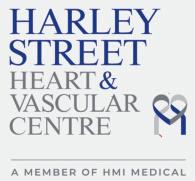How can a poor night’s sleep increase your risk of getting heart disease?
It is well known that poor quality sleep or a bad sleep routine can make people feel more tired and ineffective during the day. However, there is increasing medical evidence that poor sleep can also affect one’s overall health and increase the risk of serious conditions such as high blood pressure, diabetes and heart disease.

The average number of hours people sleep each night has decreased by around 1.5 to 2 hours per night over the past 50 years, probably due more people leading hectic lives and busy work schedules. Cramming in more during the day at the expense of a good night’s sleep can take its toll on our health. Recent studies have shown that reduced sleep (less than 6 hours a night) is linked to a higher risk of cardiovascular disease and stroke. This could be due to several reasons including increased insulin resistance (which changes the way the body handles blood sugar, increasing the risks of diabetes), blood inflammation (which can result in the build-up of cholesterol and calcium deposits in the blood vessels) and reduced heart rate variability (which is a bad sign and increases the risk of heart attack and sudden cardiac death).

Tips to improve the quality of your sleep:
·Stick to a regular sleep schedule- try to go to bed at the same time each night and get up at the same time each morning, including on the weekends.
·Get enough physical activity/ exercise during the day.
·Get enough natural light during the day and avoid day-time naps. Try going for a morning or lunchtime walk.
·Avoid alcohol and foods high in fat or sugar, especially within a few hours of going to sleep.
·Avoid artificial light around bedtime. Using a blue light filter on your computer or smartphone can help.
·Keep your bedroom dark and quiet
In addition, some people have a condition called sleep apnoea in which their upper airways collapse during sleep because the muscles that keep their airways open lose tone. This can cause a pause in breathing with sudden gasps for air. The person may not realise this is happening but feel tired the next day with reduced energy; however, their partner may notice an increase in snoring or episodes of disordered breathing. Sleep apnoea has been firmly linked with an increased risk of cardiovascular diseases and is one of the reasons why high blood pressure may be difficult to control, even with appropriate medication. The condition is diagnosed with a sleep study and should be managed by a specialist. Treatment may involve using a continuous positive airway pressure (CPAP) machine at night which helps to keep the airways open. Losing weight is also important and sometimes patients may require surgical intervention. As quality sleep is so important for us to function well the next day and a lack of sleep/ sleep apnoea is linked to cardiovascular disease, a thorough cardiac assessment is recommended if you suffer from poor sleep. This is particularly important if you have other cardiac risk factors, such as diabetes, obesity and hypertension. You should ideally aim for 7 hours or more of sleep a night to improve your cardiovascular health and general medical fitness.

Dr Reginald Liew Senior Consultant Cardiologist
Harley Street Heart & Vascular Centre
harleystreet.sg/heart | WA (65) 80312388


